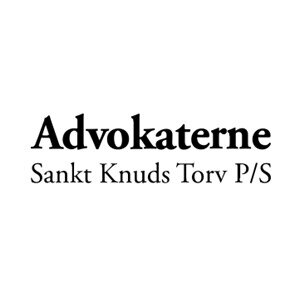Best Merger & Acquisition Lawyers in Denmark
Share your needs with us, get contacted by law firms.
Free. Takes 2 min.
Or refine your search by selecting a city:
List of the best lawyers in Denmark
About Merger & Acquisition Law in Denmark
Denmark has a dynamic and robust legal framework that governs mergers and acquisitions (M&A). This framework is characterized by a mix of EU regulations and Danish national laws, which seek to ensure fair competition, protect shareholders' rights, and promote efficient market practices. Denmark's M&A landscape is thriving, with a strong emphasis on transparency, due diligence, and compliance with local business and corporate laws. The Danish Business Authority (DBA) and Danish Competition and Consumer Authority (DCCA) are key bodies involved in the regulation of M&A activities.
Why You May Need a Lawyer
Engaging in M&A transactions can be complex, involving many legal and financial considerations. Here are common situations when legal assistance may be required:
- Negotiating terms of the merger or acquisition.
- Performing due diligence to identify potential risks and liabilities.
- Complying with regulatory requirements and obtaining necessary approvals.
- Drafting and reviewing contracts and agreements to ensure legal soundness.
- Resolving disputes or litigation that may arise from the transaction.
- Navigating cross-border M&A complexities.
- Managing post-merger integration and corporate restructuring.
Local Laws Overview
Denmark adheres to several important legal provisions when it comes to M&A:
- Company Law: The Danish Companies Act regulates the formation, operation, and dissolution of Danish companies, playing a central role in M&A transactions.
- Competition Law: The DCCA oversees compliance with competition regulations, following the Danish Competition Act to prevent anti-competitive practices.
- Securities Law: The Danish Financial Supervisory Authority (FSA) ensures compliance with securities regulations, especially in publicly listed company dealings.
- Tax Considerations: M&A deals often involve tax evaluations, guided by Danish tax laws to optimize tax structures and minimize liabilities.
- Employment Law: Employee rights during M&A are safeguarded under Danish employment law, requiring consultations and potential transfer of undertakings.
Frequently Asked Questions
1. What is the first step in an M&A transaction?
The first step is typically strategic planning, where goals and potential targets or buyers are identified and evaluated.
2. What due diligence is required in M&A?
Due diligence involves a comprehensive appraisal of the business to be acquired, including financial, legal, and operational assessments.
3. How long does an M&A transaction usually take?
The duration can vary significantly, from six months to several years, depending on the complexity and scale of the transaction.
4. Are there any restrictions on foreign investments in Denmark?
Generally, Denmark is open to foreign investments, but certain sectors may have ownership restrictions or require permission from governmental authorities.
5. What role does the Danish Competition Authority play in M&A?
The DCCA evaluates and approves transactions to ensure they do not harm competition within the Danish market.
6. Is shareholder approval necessary for an acquisition?
Yes, especially if the transaction involves significant changes, shareholder approval is often required under the Danish Companies Act.
7. Can an acquisition be voided after completion?
It is rare, but possible under certain conditions, such as fraud or failure to meet legal requirements.
8. How are employees' rights protected in M&A transactions?
Danish law protects employees by requiring consultations and, in some cases, ensuring they are transitioned automatically under similar terms.
9. What is meant by 'post-merger integration'?
This refers to the process of combining and rearranging the resources of combined businesses to realize potential synergies post-transaction.
10. What taxes are involved in M&A transactions?
Deal-specific taxes can include capital gains tax, corporate tax, and possibly transfer taxes, dependent on the transaction structure.
Additional Resources
Here are some useful resources for M&A in Denmark:
- Danish Business Authority (DBA): Provides guidance on business regulations and compliance.
- Danish Competition and Consumer Authority (DCCA): Offers resources related to competition regulations.
- Danish Financial Supervisory Authority (FSA): Offers advice on securities regulation.
- The Confederation of Danish Industry: Provides industry insights and support for M&A activities.
Next Steps
If you are considering an M&A transaction in Denmark, conducting preliminary research and consulting with a qualified legal professional with expertise in Danish M&A law is essential. Legal counsel can provide tailored advice, ensure all regulatory requirements are met, and help navigate the complexities of M&A transactions efficiently. Start by identifying experienced M&A lawyers or law firms, and schedule consultations to discuss your specific needs and objectives.
Lawzana helps you find the best lawyers and law firms in Denmark through a curated and pre-screened list of qualified legal professionals. Our platform offers rankings and detailed profiles of attorneys and law firms, allowing you to compare based on practice areas, including Merger & Acquisition, experience, and client feedback.
Each profile includes a description of the firm's areas of practice, client reviews, team members and partners, year of establishment, spoken languages, office locations, contact information, social media presence, and any published articles or resources. Most firms on our platform speak English and are experienced in both local and international legal matters.
Get a quote from top-rated law firms in Denmark — quickly, securely, and without unnecessary hassle.
Disclaimer:
The information provided on this page is for general informational purposes only and does not constitute legal advice. While we strive to ensure the accuracy and relevance of the content, legal information may change over time, and interpretations of the law can vary. You should always consult with a qualified legal professional for advice specific to your situation.
We disclaim all liability for actions taken or not taken based on the content of this page. If you believe any information is incorrect or outdated, please contact us, and we will review and update it where appropriate.
Browse merger & acquisition law firms by city in Denmark
Refine your search by selecting a city.















